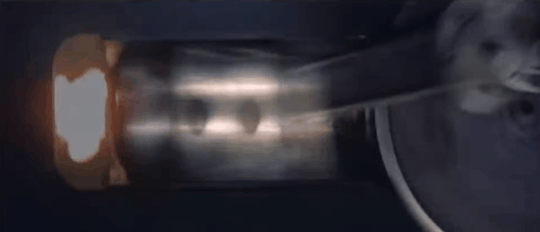#reciprocal
Text

#animated gif#animated gifs#gif#gifs#old advertisements#old ads#retro#engine#motor#pistons#suck squeeze bang blow#internal combustion#reciprocal#looping gif#powerful#film#60s
22 notes
·
View notes
Text

Nikita Gill wrote, “How do you go back to being strangers with someone who has seen your soul?” The answer is easy. Never try to get to know them back. Never try to see THEIR soul. Because as much as you have seen the deepest part of someone’s soul, if they never bothered to see yours, you will inevitably go back to being strangers.
#poets on tumblr#love quotes#love poetry#romantic poetry#love poem#romantic writer#onurtaskiran poetry#poets and writers#gentleman poet#love#strangers#from friends to strangers#reciprocal#open book#love poem of the day#daily poetry#poem a day#self absorbed#you never knew me#feelings
80 notes
·
View notes
Text
There's a belief that to take care of someone else, or to let someone else take care of you—that both are inherently unfeminist. I don't agree. There's no shame in devoting yourself to another person, as long as he devotes himself to you in return.
Curtis Sittenfeld, from Eligible
#relationships#feminism#reciprocal#two way street#relationship advice#mutual love#healthy relationship#devotion#quotes#lit#words#excerpts#quote#literature#curtis sittenfeld#eligible#partners#partnership
18 notes
·
View notes
Text
"Magic uses people," said Rincewind hurriedly. "It affects you as much as you affect it, sort of thing. You can't mess around with magical things without it affecting you. I just thought I'd better warn you."
"Like a wine bottle," said Creosote, "that--"
"--drinks you back," said Rincewind. "So you can put down that lamp and ring for a start, and for goodness' sake don't rub anything."
Terry Pratchett, Sourcery
#rincewind#creosote#sourcery#discworld#terry pratchett#magic#wizards#power#reciprocal#consequences#warning#wine#metaphors#magic lamp#a wine bottle that drinks you back
183 notes
·
View notes
Text

Great artists are those who impose their particular illusion on humanity. (Guy de Maupassant)
#illusion#humanity#artists#collective#removal#instinctive#contraposition#investigate#reciprocal#compare#convoluted#transcendental#archetypes#vibrancy#surprising
21 notes
·
View notes
Text

9 notes
·
View notes
Text
Don’t be going around giving away your magic to undeserving people.
132 notes
·
View notes
Text
What do *you* use or offer, in the same way some Native North Americans use tobacco, to show gratitude to your god or gods, when doing ritual or prayer or taking something from Earth or the Universe? Why?

#natural pantheism#pantheism#spirituality#scientific pantheism#prayer#small gods#gratitude#tobacco#sacredness#robin wall kimmerer#reciprocal
2 notes
·
View notes
Text
Weekly Manhood Nuggets Video: Jesus' Attitude Towards Rich and Poor
It takes holiness to detect holiness.
#mission#rich#poor#yoke#humble of heart#reciprocal#obedient#jesus#church#catholic#chicago#frank j casella#photography
2 notes
·
View notes
Text

Via de mão dupla, assim é a vida.
Em tudo que fizer, doe-se por completo, por inteir@; sem tolher o gingar deleitavel do ato de dar-se para agradar. E com o mesmo alento, espere e deseje receber.
Afinal, se a via estreitar-se demais, o ar esvai-se e a graça da vida se vai.
Mr. Saldanha
4 notes
·
View notes
Text

#open your eyes#reciprocal#loyalty#absence#life lessons#reality of life#life#facts#hope#god is my refuge#faith#relationship#strength#god
0 notes
Text

#animated gif#animated gifs#gif#gifs#old advertisements#old ads#retro#piston#machinery#reciprocal#60s#film#show this to your robot friends
14 notes
·
View notes
Text

1 note
·
View note
Quote
The heartbreak in your face. As if all you'd ever wanted was for someone to protect you the way you protect them.
Soman Chainani, from A World Without Princes
#heartbreak#protection#protector#protect me#safe#mutual love#two way street#reciprocal#still searching#relationship#balance#moving#poignant#my favorite line#quotes#lit#words#excerpts#quote#literature#what a line#soman chainani#a world without princes#the school for good and evil
57 notes
·
View notes
Text
Word of The Hour: reciprocal
English: reciprocal 1. recurring in vicissitude 2. interchanging or interchanged 3. given and received ------------ - French: réciproque - Hindi: अंतर्बदल - Italian: reciproco - Portuguese: recíproco - Spanish: recíproco ------------ Join our new subreddit for language learners @ https://reddit.com/r/LearnANewLanguage
0 notes
Text
Pronoun Exercises

Pronoun definition and exercises
Pronouns are words that substitute nouns in sentences to avoid repetition or add clarity.
They come in various types, each serving a specific function:
Personal Pronouns:
Refer to specific people, animals, or things.
They include subjective pronouns (I, you, he, she, it, we, they),
objective pronouns (me, you, him, her, it, us, them),
and possessive pronouns (mine, yours, his, hers, its, ours, theirs).
Demonstrative Pronouns:
Point out specific people, animals, or things in relation to the speaker.
They include this (near the speaker) and that (away from the speaker), as well as their plurals these and those.
Reflexive Pronouns:
Reflect back to the subject of the sentence and are used to emphasize the subject's action.
Examples include: myself, yourself, himself, herself, itself, ourselves, yourselves, and themselves.
Relative Pronouns:
Introduce relative clauses, which describe or give more information about a noun.
Common relative pronouns include: who, whom, whose, which, and that.
Interrogative Pronouns:
Used to ask questions.
Examples include: who, whom, whose, which, and what.
Indefinite Pronouns:
Refer to nonspecific people or things.
Examples include: some, any, no, much, many, little, few, all, someone, somebody, something, anybody, anything, anyone, nobody, everything, everybody, every, each, both, other, others, several, either, neither, no one, and one.
Possessive Pronouns:
Indicate ownership or possession without the need for a noun.
Examples include: mine, yours, his, hers, its, ours, and theirs.
Reciprocal Pronouns:
These pronouns are used when two or more people perform an action to or for each other.
They indicate a mutual relationship or action between the individuals involved.
The main reciprocal pronouns are:
Each other: Refers to two people or things.
For example: They hugged each other.
One another: Similar to each other but can refer to more than two people or things.
For example: The team members supported one another during the competition.
RELATIVE PRONOUNS:
Relative pronouns are used to introduce relative clauses, which provide additional information about a noun in the main clause of a sentence.
Who:
Used to refer to people.
It is the subject of the relative clause.
Example: The woman who lives next door is a doctor.
Whom:
is a relative pronoun used to refer to people as the object of a verb or preposition in a relative clause.
It is more formal and is often used in formal writing or speech,
although who is more commonly used in informal contexts.
Example: The woman whom I met at the party is my neighbour.
Whose:
Indicates possession and is used to refer to both people and things.
It can replace the pronouns its, theirs, hers and his
Example: The house whose(which) windows are painted blue is mine.
Which:
Used to refer to animals, things, or an entire clause.
It is often used after a comma when the relative clause provides additional, nonessential information.
Example: The book, which was published last year, is a bestseller.
That:
Can refer to both people and things.
It is often used in restrictive relative clauses, which provide essential information about the noun and are not separated by commas.
Example: The car that is parked in the driveway belongs to my brother.
Relative Pronouns in Table Form:
Relative Pronoun
Function
Example (Defining)
Example (Non-Defining)
who
Subject or Object
The man who lives next door is my friend.
John, who is my neighbour, is an engineer.
whom
Object
The woman whom I met is a doctor.
My friend, whom I met at the party, is visiting from out of town.
whose
Possession
The house whose windows are broken is old.
Sarah, whose parents live in France, speaks fluent French.
which
Subject or Object
The book which is on the table is mine.
The car, which is parked in the driveway, belongs to my neighbor.
that
Subject or Object
The car that I bought is blue.
The cat that is sitting on the chair is mine.
Relative pronouns can be left out when they are the object of the verb in the relative clause and the relative pronoun is not followed by a preposition.
This is especially common in informal English.
Here are some examples:
The book (that/which) I read last night was fascinating.
The person (who/whom) she met at the party was her old friend.
The car (that/which) he drives to work every day is very reliable.
The house (that/which) they bought last year needs some renovation.
PERSONAL PRONOUNS:
These personal pronouns are used to replace or refer to specific people, animals, or things in sentences, depending on their grammatical function.
Person
Subjective (Subject)
Objective (Object)
Possessive Adjective
Possessive Pronoun
Reflexive
First
I
Me
My
Mine
Myself
Second
You
You
Your
Yours
Yourself
Third
He
Him
His
His
Himself
Third
She
Her
Her
Hers
Herself
Third
It
It
Its
Its
Itself
First
We
Us
Our
Ours
Ourselves
Second
You
You
Your
Yours
Yourselves
Third
They
Them
Their
Theirs
Themselves
Exercises:
Instructions:
Please, do the exercises without seeing the Answers.
If you are unable to find an answer, you can check the answers provided below after attempting all the blanks.
Personal Pronoun Exercise:
Instructions: Fill in the blanks with the appropriate personal pronouns from the provided brackets:
1.Sarah and went to the park. (he, she)
2. Please give the book. (me, us)
3. They enjoyed at the party. (themselves, himself)
4. are going to the cinema tonight. (we, you)
5. He wanted to join him. (them, her)
6. Could pass the salt? (you, me)
7. She made a sandwich. (me, him)
8. We should clean the room. (they, ourselves)
9. He is proud of achievements. (her, his)
Answers: He, me, themselves, We, her, you, me, me, ourselves, his
Instructions:
Replace the bolded word or phrase with an appropriate personal pronoun.
Example:
Original sentence: Sara went to the store to buy groceries.
Revised sentence: She went to the store to buy groceries.
- John and Emily are going to the movies tonight.
- The dog was barking loudly because Tom was at the door.
- The team won the championship after months of hard work.
- Did you remember to turn off the lights before leaving the house?
- My sister and I are planning a trip to Europe next summer.
- Can someone please pass the salt?
- The students completed their assignments before the deadline.
- Jack and Jill went up the hill to fetch a pail of water.
- The cat licked its paws clean after eating.
- The children played in the park until it got dark.
Answers:
- They are going to the movies tonight.
- The dog was barking loudly because he was at the door.
- They won the championship after months of hard work.
- Did you remember to turn off the lights before leaving the house?
- We are planning a trip to Europe next summer.
- Can someone please pass the salt?
- They completed their assignments before the deadline.
- They went up the hill to fetch a pail of water.
- It licked its paws clean after eating.
- They played in the park until it got dark.
Object Form Pronoun Exercise:
Instructions:
Choose the correct object forms of the given personal pronouns to complete each sentence.
- Please give ____ the book. (I, me)
- He told ____ the secret. (I, me)
- They invited ____ to the party. (we, us)
- She loves ____ very much. (he, him)
- I helped ____ with their homework. (she, her)
- We saw ____ at the park yesterday. (they, them)
- The teacher praised ____ for their hard work. (we, us)
- Can you pass ____ the salt, please? (I, me)
- He called ____ to wish ____ a happy birthday. (she, her)
- They gave ____ a present for Christmas. (I, me)
Answers: me, me, us, him, her, them, us, me, her, her, me
Instructions:
Choose the correct object form of the personal pronoun that can substitute the underlined phrase in each sentence.
1.Sarah baked a cake for her friend.
Sarah baked a cake for ____. (he, him)
2.Emily sent a postcard to her grandparents.
Emily sent a postcard to ____. (they, them)
3.Alex helped his brother with the homework.
Alex helped ____. (he, him)
4.Maria asked her colleague for assistance.
Maria asked ____. (she, her)
5.We bought a gift for our neighbour.
We bought a gift for ____. (they, them)
6.Susan congratulated her sister on her achievement.
Susan congratulated ____. (she, her)
7.Mark thanked his parents for their support.
Mark thanked ____. (he, them)
8.The dog followed its owner everywhere.
The dog followed ____ everywhere. (he, him)
9.They offered a job to their friend.
They offered a job to ____. (she, her)
Answers: him, them, him, her, them, her, them, him, her.
Instructions:
Determine whether the personal pronoun is serving as a subject or object.
Example:
Original sentence: She is going to the store.
Is She serving as a subject or object?
- He gave her a book.
- We saw them at the concert.
- I baked a cake for you.
- They invited us to their party
- She helped him with his homework.
- You should thank them for their help.
- He and I went to the store together.
- They are waiting for her
- We are happy for you.
- She called me yesterday.
Answers:
- Subject, Object
- Subject, Object
- Subject, Object
- Subject, Object
- Subject, Object
- Subject, Object
- Subject, Object
- Subject, Object
- Subject, Object
- Subject, Object
Instructions:
Determine whether the underlined word is a subject form, object form of the personal pronoun, or a possessive determiner. Choose the correct classification for each word.
- He comes from Paris.
- Can you help me?
- They invited us to their party.
- I saw her at the store yesterday.
- She gave him a present for his
- We sent them an invitation to the wedding.
- He called you to discuss the project.
- She asked me for help with her
- They told us about their trip to Italy.
- He offered her a ride home.
Answers:
- Subject
- Object
- Object
- Object
- Possessive Determiner
- Subject
- Object
- Possessive Determiner
- Possessive Determiner
- Object
Instructions:
Fill in the gaps with the correct personal pronouns or possessive determiners.
- Sarah baked a cake for __ friend.
- Can you help __?
- They invited __ to their party.
- I saw __ at the store yesterday.
- She gave __ a present for __ birthday.
- We sent __ an invitation to the wedding.
- He called __ to discuss the project.
- She asked __ for help with __ homework.
- They told __ about their trip to Italy.
- He offered __ a ride home.
Answers:
- her
- me
- us
- her
- him, his
- them
- you
- me, her
- us
- her
Possessive Pronoun Exercise:
Instructions:
Choose the appropriate possessive pronoun to complete each sentence.
- This is ____ book. (my, mine)
- Is this pencil ____? (your, yours)
- The house on the corner is ____. (our, ours)
- That car is ____. (his, his)
- The paw licked by cat is ____ (its, its)
- Whose bag is this? It's ____. (her, hers)
- These tickets for trip are _____ (our, ours)
- Those shoes are ____. (them, theirs)
- This black coffee is_____ (my, mine)
- The keys are ____. (your, yours)
Answers:
- mine
- yours
- ours
- his
- its
- hers
- ours
- theirs
- mine
- yours
Mixed Pronoun Exercise:
Instructions:
Fill in the gaps with the correct form of the pronoun (subject/object) or possessive pronoun/determiner.
- ____ went to the store to buy some groceries. (She, Her)
- The teacher praised ____ for completing the assignment on time. (They, Them)
- Whose jacket is this? It's ____. (My, Mine)
- They asked ____ for help with the project. (I, Me)
- Please give ____ a call when you arrive. (We, Us)
- The cat licked ____ paw. (It's, Its)
- This is not ____ book; it's ____. (My, Yours), (Your, Mine)
- We enjoyed ____ vacation in Hawaii. (Our, Ours)
- He told ____ about his plans for the weekend. (I, Me)
- Is that ____ umbrella? (Your, Yours)
Answers:
- She (Subject Pronoun)
- Them (Object Pronoun)
- Mine (Possessive Pronoun)
- Me (Object Pronoun)
- Us (Object Pronoun)
- Its (Possessive Determiner)
- My (Possessive Determiner), Yours (Possessive Pronoun)
- Our (Possessive Determiner)
- Me (Object Pronoun)
- Your (Possessive Determiner)
Reflexive Pronoun Exercise:
Instructions:
Choose the correct reflexive pronoun from choices to complete each sentence.
1. He always makes breakfast ____.
(myself, yourself, himself, herself, itself, ourselves, yourselves, themselves)
2. Sarah taught ____ how to ride a bike.
(myself, yourself, himself, herself, itself, ourselves, yourselves, themselves)
3. The cat groomed ____ in the sunlight.
(myself, yourself, himself, herself, itself, ourselves, yourselves, themselves)
4. They painted the house ____.
(myself, yourself, himself, herself, itself, ourselves, yourselves, themselves)
5. We _____need to remind them to bring their textbooks.
(myself, yourself, himself, herself, itself, ourselves, yourselves, themselves)
6. He always does his homework _____
(myself, yourself, himself, herself, itself, ourselves, yourselves, themselves)
7. The children amused ____ by playing games.
(myself, yourself, himself, herself, itself, ourselves, yourselves, themselves)
8. You should be proud of ____ for completing the marathon.
(myself, yourself, himself, herself, itself, ourselves, yourselves, themselves)
9. After the long hike, they treated ____ to a delicious meal.
(myself, yourself, himself, herself, itself, ourselves, yourselves, themselves)
10. I'll do the dishes ____ if you take out the trash.
(myself, yourself, himself, herself, itself, ourselves, yourselves, themselves)
Answers:
- himself
- herself
- itself
- themselves
- ourselves
- himself
- themselves
- yourself
- themselves
- myself
Instructions:
Write your selected reflexive pronoun in the blank space provided.
Read the full article
#adjective#all#another#any#anybody#anything#both#demonstrative#exercises#her#hers#him#himself#his#interrogative#its#me#mine#my#myself#neither#no#noone#objective#other#personal#possessive#possessivepronoun#pronoun#reciprocal
0 notes